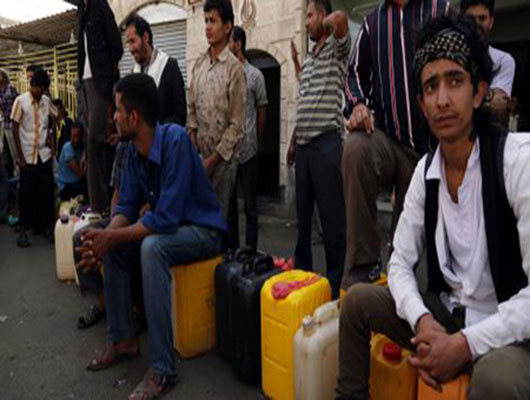
Oxfam: Two-thirds of Yemenis without Clean Water
Local Editor
Almost two-thirds of the population of war-torn Yemen have no access to clean water, two months into the Saudi-led air campaign against Yemen, relief agency Oxfam said Tuesday.
"Ongoing air strikes, ground fighting and fuel shortages mean that an additional three million Yemenis are now without drinking water, raising the total number of Yemenis without a clean water supply and sanitation to at least 16 million," the Britain-based organization said.
"This is equivalent to the populations of Berlin, London, Paris and Rome combined," Oxfam’s Yemen director Grace Ommer said in a statement.
The group further stated that before the Saudi-led campaign against Yemen, half the population of the impoverished nation had no access to clean drinking water, the group said.
Weeks of air strikes and ground fighting have damaged and disrupted large parts of the water network, Oxfam said.
The organization further warned that "People are being forced to drink unsafe water as a result of the disintegration of local water systems, bringing the real risk of life-threatening illnesses, such as malaria, cholera, and diarrhea."
According to the watchdog, seven weeks of airstrikes and fighting have damaged and disrupted large parts of the network.
In the rural areas of Hajjah and al-Hodeidah governorates in western Yemen, 40% of the local clean water supply systems which Oxfam were supporting have now shut down. Newly displaced people from Saada have also confirmed that another 150,000 people in that area are now without water.
Based on these figures, Oxfam estimates that as many as 3 million more people across the country are now without access to clean water due to the conflict.
Residents in Taiz have told Oxfam that they are suffering a severe water shortage and are relying on trucks. But a lack of fuel and fighting in the streets means that it takes 4-5 days to get water delivered and the prices have increased exponentially.
Ommer added: "A serious outbreak of disease is looming if water and sanitation issues are not addressed. Hospitals are struggling to cope without access to fuel, clean water and medical supplies. They surely can’t handle a surge in disease.
Source: News Agencies, Edited by website team
